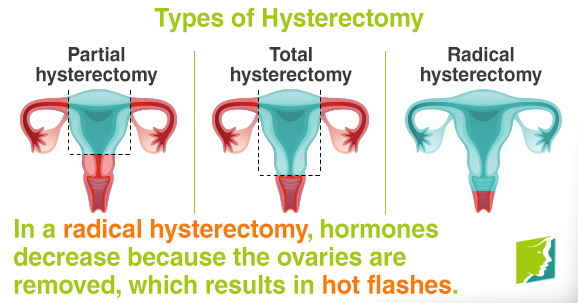A hysterectomy is a procedure that removes the uterus. Generally, it does not immediately cause menopause unless the ovaries are also removed. However, removal of the uterus can lead to menopause sooner than normal, causing women to experience symptoms like hot flashes.
Continue reading to learn more about hot flashes after hysterectomy as well as treatment for hot flashes after hysterectomy to take control of your reproductive well-being today.
About Hot Flashes After Hysterectomy
Why Do They Happen?
Although women who had hysterectomies were scientifically found to have a higher risk of suffering from hot flashes, the exact cause has not been identified. It is most likely due to an interrupted blood supply to the ovaries.
Hot flashes after hysterectomy can also be due to the fact that women are entering menopause around the time of the procedure. A disturbed blood supply may be the reason why they are entering menopause sooner than they naturally would as well.
How Long Do They Last?
There is a chance that hot flashes and other menopause symptoms can evolve within five years of having the procedure, even if one or both ovaries are left intact. Once women start suffering from hot flashes after hysterectomy, it is hard to determine when they will permanently end, although they are known to last for an extended period of time.
Managing Hot Flashes after Hysterectomy
The following are various approaches that can reduce the severity of hot flashes post-hysterectomy:
- Exercise smartly. An ideal exercise for hot flashes are aqua-aerobics or swimming laps as they help keep a hot flash-prone body cool.
- Improve your diet. Incorporate important macronutrients into your diet - lean proteins, healthy fats, and complex carbs - while avoiding food triggers, such as caffeine, alcohol, and spicy foods.
- Wear appropriate apparel. Wear light, breathable clothing to help keep the body cool. Also, dress in layers when appropriate.
- Carry a portable fan. When a hot flash strikes, a simple item like a portable fan can provide women with instant relief.
- Practice stress-relief techniques. Research suggests that yoga, tai chi, meditation, and other tactics to relieve stress improve menopause symptoms, such as hot flashes.
Treatment for Hot Flashes after Hysterectomy
Since many women who undergo a hysterectomy may be passing through perimenopause around the same time, treating the hormonal imbalance at fault for hot flashes and other symptoms will bring them ultimate, long-lasting relief. As such, leading a healthy lifestyle in addition to alternative medicine is the most effective treatments for hot flashes.
Sources
- Abdelazim, I.A. et al. (2015). Ovarian function and ovarian blood supply following premenopausal abdominal hysterectomy. Przeglad Menopauzalny, 14(4), 238-242. doi: 10.5114/pm.2015.56312
- National Institute on Aging. (2017). Hot Flashes: What Can I Do? Retrieved April 17, 2019, from https://www.nia.nih.gov/health/hot-flashes-what-can-i-do
- NHS. (2019). Considerations: Hysterectomy. Retrieved April 17, 2019, from https://www.nhs.uk/conditions/hysterectomy/considerations/
- Wilson, L.F. et al. (2016). Hot flushes and night sweats symptom profiles over a 17-year period in mid-aged women: The role of hysterectomy with ovarian conservation. Maturitas, 91, 1-7. doi: 10.1016/j.maturitas.2016.05.011




